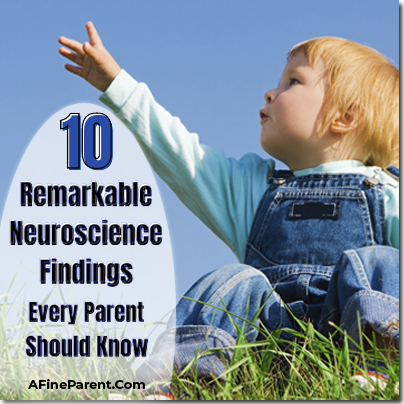 Do you remember the joy and pride of holding your newborn? Your squishy baby, those loud cries and your arms aching to cuddle him and give him comfort?
Do you remember the joy and pride of holding your newborn? Your squishy baby, those loud cries and your arms aching to cuddle him and give him comfort?
As I held my own fresh newborn, I remember feeling such a mix of emotions: happy, joyous, proud–but overwhelmed, too. I remember thinking to myself: how do I care for him?
In hardly any time, my little man grew into a toddler. I embraced the playful moments along with the meltdowns and emotionally challenging moments. The researcher inside me often thought: what is going on in his little brain? How can we help him grow into a fine boy? How can we nurture his brain development?
Neurological development or brain growth begins very early in life, just a few weeks after conception. The foundation for sensory, visual and cognitive functioning is laid and developed in the first years of your child’s life. Encouraging and providing our children with proper stimulation and good experiences helps the brain cells to mature, proliferate, and form connections.
While brain growth begins prior to birth, this growth continues into the teenage years and eventually into early adulthood. As parents, we can help support the physical, emotional, social, and language development of our children.
Here are 10 remarkable neuroscience findings and ways in which we can support the neurological growth of our children:
#1: The Brain Develops Rapidly in the First Years of Life
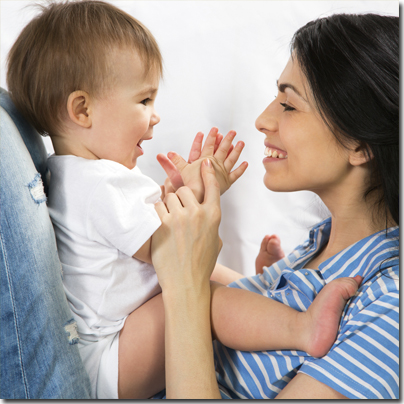 Your child’s brain undergoes rapid and intense development in the initial three years of life. During these years, your baby’s brain is restructured to form new neuronal connections and pathways. These sensory and visual connections lay the path for emotional, memory, and decision making abilities into adulthood.
Your child’s brain undergoes rapid and intense development in the initial three years of life. During these years, your baby’s brain is restructured to form new neuronal connections and pathways. These sensory and visual connections lay the path for emotional, memory, and decision making abilities into adulthood.
Research says an infant’s brain develops the best in the first years of life. Experiences, stimulations and the love and care we give provides our children with an ideal environment to lay the roots for sound emotional and cognitive development and maturation.
Some ways in which we can encourage this early life growth include:
- Letting our children run around and explore their world.
- Giving them hands-on experience playing with toys, touching, seeing and feeling things around them.
- Allowing our children to explore and develop a relationship with nature.
- Encouraging them to do simple tasks such as brushing their teeth and putting on shoes. Being repetitive and intentional helps them to gain the confidence to do simple tasks by themselves.
#2: Maturation of the Brain Helps Children Execute Complex Functions
 The prefrontal part of the brain allows our children to carry out tasks like problem-solving, planning and reasoning. This part of the brain develops during the preschool years.
The prefrontal part of the brain allows our children to carry out tasks like problem-solving, planning and reasoning. This part of the brain develops during the preschool years.
We can encourage the development of executive functioning by:
- Encouraging the growth of attention by reading stories to our children. As they learn to listen, they are also learning to sit still and resist distraction.
- Encouraging the growth of patience by letting them wait for a turn when playing with others. By doing so, our children learn about taking turns and being patient.
- Encouraging the growth of executive motor skills by allowing our children to play, run around, and explore. Children cannot be expected to sit still for long.
- Encouraging flexible and executive thinking with the help of toys that require problem-solving skills.
- Encouraging problem solving and empathy by asking our children to share their toys. When this results in our child becoming upset, we can give them time to think and solve the problem on their own.
#3: A Baby’s Brain Goes Through Phases of Critical Development
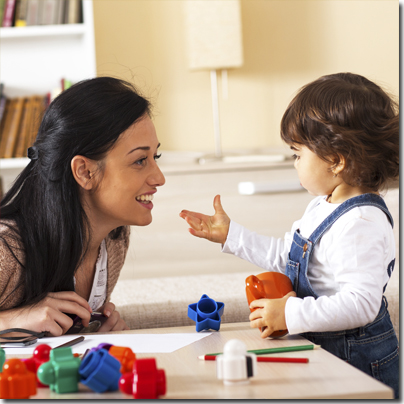 As a baby’s brain matures, certain phases of intense brain activity will occur that are vital for the development of sensory, visual, language and social skills. These phases are called “critical periods.”
As a baby’s brain matures, certain phases of intense brain activity will occur that are vital for the development of sensory, visual, language and social skills. These phases are called “critical periods.”
Research says that critical periods restructure and rewire the brain’s neural circuits, which is essential for mental development. During this stage, sensory input is crucial for neuron development and maturation.
We can further encourage growth during these critical periods by:
- Letting our children repeat activities. Repetition helps the brain to process and learn new experiences. For example, my youngest loves to spend time dumping his toys and refilling the container, again and again. While this may be boring to watch, it is good for his brain!
- Allowing our children to learn at their own pace. Every child is unique in their natural learning pace.
- Allowing them to explore personal interests, repeat them, and learn from them.
- Encouraging our children to run around and explore in an environment that is safe and secure.
#4: Copying and Imitating Others Feeds Neurons in the Brain
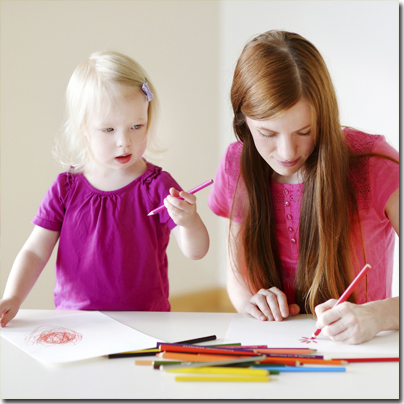 Have you ever wondered why your girl tries to dress up like her mummy? This is your answer!
Have you ever wondered why your girl tries to dress up like her mummy? This is your answer!
A part of the child’s brain contains mirror neurons. These neurons enable our children to learn by observing and repeating the behaviors they see those around them engage in.
Studies say that children need to be allowed to observe and repeat behaviors to let their brain learn and practice.
We can help with this by:
- Letting our children see how we handle different situations, the lifestyles we choose, and our behavior towards them.
- Reminding ourselves that our children are always watching and will likely model the speech and behaviors that they observe.
- Being the role models we want to be for our children!
#5: Toxic Stress Causes Irreversible Damage to Brain Development
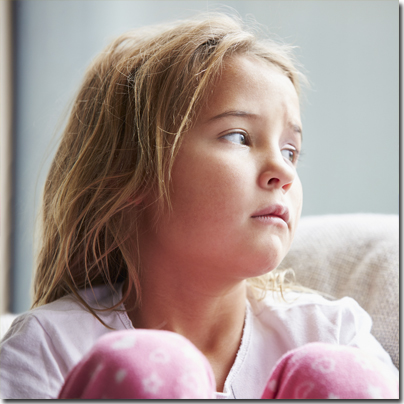 For centuries, neurologists have studied the impact of stress on brain growth, maturation and development. Experts say that chronic toxic stress like abuse, poverty, and severe maternal depression can have lasting long-term impacts on your child’s brain development.
For centuries, neurologists have studied the impact of stress on brain growth, maturation and development. Experts say that chronic toxic stress like abuse, poverty, and severe maternal depression can have lasting long-term impacts on your child’s brain development.
While stress is impossible to avoid at all times, we can help with the magnitude of stress our children experience by:
- Encouraging and motivating them to learn at their own pace.
- Utilizing positive parenting techniques to create a welcoming learning environment.
- Avoid adding to already stressful situations. For example, we can decrease stress during a meltdown by allowing our child access to a quiet space and time to calm down, before we help them process the reason for the meltdown.
- Inevitably, stress might be unavoidable at times; but we can still be there for them when they experience stress. A hug and a cuddle can go far during those tough times!
#6: Emotional Development Shapes Brain Functioning
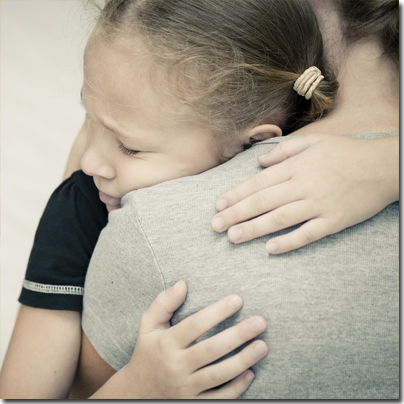 The roots of emotional development and functioning are laid early in life. The emotional reactions that our children have to different situations will ultimately affect their thinking and perception.
The roots of emotional development and functioning are laid early in life. The emotional reactions that our children have to different situations will ultimately affect their thinking and perception.
Research has shown that emotional development influences cognitive and executive functions like memory, decision making, and problem-solving. Therefore, the emotional development of our children at a young age is significantly important for success later in life.
We can encourage healthy emotional development in our children by:
- Letting them express their emotions. While it may seem silly for our children to cry over broken toys, validating and acknowledging their feelings is crucial.
- Allowing our children to interact and play with children outside of siblings. It is especially critical for children to learn to control emotions towards other kids as they approach school-aged years.
- Giving opportunities for our children to share and care for others of their age. Sharing toys, playing and interacting with friends encourages the development of trust and care.
- Telling our children that we are there for them, no matter what.
#7: Cognitive Development is Linked to Being Active
 The motor cortex is the part of the brain that controls movement. It is this section of the brain that is directly connected to your child’s gross motor activities and physical need to explore the world.
The motor cortex is the part of the brain that controls movement. It is this section of the brain that is directly connected to your child’s gross motor activities and physical need to explore the world.
Studies indicate that kids should be allowed free movement to run around, play, and explore their surroundings. This is vital for motor and cognitive development like memory, thinking, and problem solving. An active child will be more ready for school and learning tasks.
We can encourage the growth of motor development by:
- Providing daily and regular playtimes, in which our children can run around and explore their world.
- Arranging playdates with friends of similar ages, where they can safely enjoy roaming with their peers. As long as they are safe, let them enjoy playtime. Going for bike rides, arranging picnics, or a day out on the beach are good play options to get children active and running with their friends.
- Understanding that children cannot sit still for long periods of time; expecting a child to do so will most likely end in frustration for both our children and us!
#8: The Child’s Brain is a Storehouse of Creativity
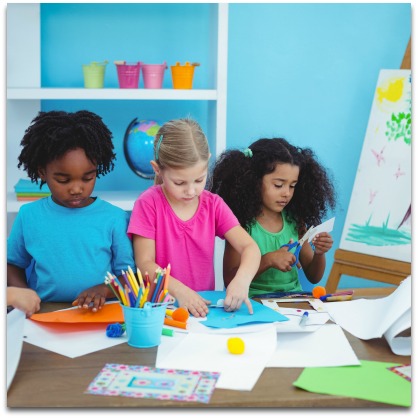 Creativity is the result of the networking of millions of brain cells or neurons. This networking needs to be nurtured and stimulated for the imagination to shine through.
Creativity is the result of the networking of millions of brain cells or neurons. This networking needs to be nurtured and stimulated for the imagination to shine through.
Studies have found that kids who are exposed to music at an early age have more developed brains than those not exposed to music. Encouraging various forms of creativity in the early years of life fosters brain development and maturation that leads to strong creativity skills in adulthood.
We can encourage the growth of creativity in our children by:
- Allowing our children to play with other children in the neighborhood. They learn from caring and sharing experiences, especially when other children have different interests than their own.
- Encouraging our children to develop interests and then allowing them time to explore that interest. For example, if our child is really into playing with blocks or Lego’s every day, set aside time for exactly that to happen! Allowing interest-building time often gives way to creative imaginations.
- Providing opportunities for creative play, dressing up, and for doing simple experiments. A brain that learns and repeats activities lays the foundation for tremendous success.
#9: Building Routines Help in Brain Development
 Having habits that are consistent and practiced help in mental growth and development; not to mention the great side effect of feelings of security and responsibility. Never underestimate the benefit of regular routines!
Having habits that are consistent and practiced help in mental growth and development; not to mention the great side effect of feelings of security and responsibility. Never underestimate the benefit of regular routines!
Research shows that children with regular routines learn and function better in different activities. A lack of consistency may cause flawed thinking, difficulty problem solving, and can negatively impact school performance. Keep in mind that daily routines often lead to less confusion and more cooperative children!
Some ways in which we can encourage brain development through the use of routines include:
- Keeping routines simple and easy to follow.
- Making a commitment to follow routines even on weekends. It’s okay to stray sometimes, but remember that having a routine benefits everyone in the family, even the adults!
- Encouraging our children to keep the routines and do things as planned, especially as they grow older.
- Allowing ourselves to be encouraged by the recognition that our children gain a sense of security and belonging when they have regular routines.
#10: Your Child and His Brain are Unique
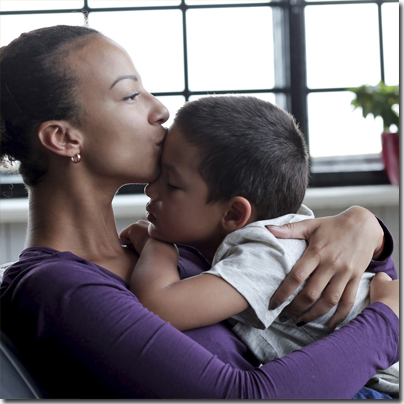 Every child is different. Your child has unique abilities, strengths, and weaknesses. Remarkably, even your child’s brain structure is unique. Researchers have found that even identical twins have completely different brains.
Every child is different. Your child has unique abilities, strengths, and weaknesses. Remarkably, even your child’s brain structure is unique. Researchers have found that even identical twins have completely different brains.
We need to learn and understand our children in all their uniqueness and creativity so that as parents we can help shape it to the maximum potential possible. Successful entrepreneurs and innovative minds have their childhood experiences to thank as they were allowed to explore the world around them.
We can encourage our children in their development by:
- Providing them with lots of challenging and exciting experiences for them to learn and grow.
- Letting them do activities and experiments that are safe and can be done without adult intervention.
- Allowing them to face and overcome challenges and come up with solutions.
- Respecting them and acknowledging their emotions and feelings. Your child’s brain is being shaped daily by his experiences.
- Encouraging a healthy, balanced diet, full of nutritious brain foods that will help brain function and influence the expression of inherited family genes.
The Brain is Like a House
 The brain of the child is like a house that is being built. The foundation needs to be laid strong and the frames and windows need to be fitted. All the connections have to be taken care of for it to be built strongly. If the foundation is laid correctly, the result is going to be beautiful. Your baby will grow into a young adult with substantial physical, emotional and psychological maturation.
The brain of the child is like a house that is being built. The foundation needs to be laid strong and the frames and windows need to be fitted. All the connections have to be taken care of for it to be built strongly. If the foundation is laid correctly, the result is going to be beautiful. Your baby will grow into a young adult with substantial physical, emotional and psychological maturation.
Your child’s brain goes through an intense and rapid growth in the initial three years, reaching about 95 percent of the total capacity by six years. Nonetheless, this growth continues through their adolescence.
Studies say that a child’s brain patterns remodel themselves in adolescence, influencing their thinking and behavior. Providing strong support and encouragement during this ‘pruning phase’ helps in developing a healthy brain as an adolescent.
The 2-Minute Action Plan for Fine Parents
Your child’s brain grows rapidly and intensely in the first years of life. As a parent, you can cherish and nourish your child’s growth and development by providing positive stimulus and a safe environment to foster maturation. Take a few minutes to ask yourself some guiding questions:
- How can I help my child’s emotional and mental development?
- What is the one thing I could do today that will remove stress and help my child feel safe and secure?
- What could I do to encourage creativity and problem-solving skills in my child?
- Am I providing my child with enough stimulation and the right environment to run around and explore his world?
- How can I spend more quality time with my child?
The Ongoing Action Plan for Fine Parents
As your child’s brain changes and matures with their age, we can motivate them to develop their potential by focusing on the ways in which we can support neuroscience findings. Look for opportunities with your child to:
- Engage in safe playtimes with other children.
- Allow them independence to problem solve and to take action when faced with confronting situations.
- Encourage a close relationship with their natural world.
- Utilize positive discipline, as harsh discipline and unkind words creates negativism and impedes brain growth and development. When it gets tough, calm down, take a deep breath, and talk softly. Children listen and cooperate when they (and we) are less stressed.
- Use necessary stressful situations as a means of modeling how to cope with a calm and peaceful attitude.
- Model a healthy lifestyle.
Finally, remember to be kind to yourself! You are the one best fitted for your child. Your child’s brain is at its most flexible in the early years, with the brain continuing to grow and expand into early adulthood. Being there to lead them by hand and example will nurture a resilient generation.
Hi Maria
Thanks for such an insightful and beautifully written post. Being a single parent of an 18 years old young lady; parenting has been my main focus and a challenge through all these years as I was blessed to take care of her all by myself from the very day she was born. Although I’ve missed some valuable moments during her early childhood being away for making a living but reading your article has made me realize that efforts I’ve managed to put in( still do) have worked to a good extent, as has turned out turned into a confident, compassionate and considerate human being in spite of it all.
Look forward to more of this good stuff.
Love, N
What if you are a domestic violence victim and went through a horrible and contentious divorce all throughout their early childhood – Do you have any resources for that?
I know I’ve failed for my child’s early years. :*(
Thanks
I am so sorry that the going has been so rough for you and your family, DJ. Are you a part of our Positive Parenting Village (https://www.facebook.com/groups/PositiveParentingVillage) Facebook group? I highly recommend posting this in there… we have a great community of very helpful parents in that group and I am sure someone will have suggestions and advice that you could find helpful.
I wish you the very best!
My heart goes to you, Dj. I too was not in a state to enjoy my motherhood, neither could spend enough quality time with my child but used to read book hardly for 5 minutes everyday-still I do this and she is 9! I carry the pain of missing such valuable time but try to spend little bit quality time and we’ve strong bonding. So, please spend some dedicated quality time with your children-even if its 5 mins and it can be so much for both of you.
love
take care
Papiya
Thank you for a well researched and written article. As a parent educator and freelance writer for our local weekly paper I’ve been working on pieces to help parents navigate the pandemic with kids primarily at home. Your article gives me lots of positive information to use that I can offer with practical suggestions during this very stressful time. The topic has been of primary interest to me and I’ve been looking for ways to share it with my readers.
Appreciatively,
Edie Jones
Thank you for such kind words, Edie. So glad to hear the article connected with you. I wish you the very best in supporting parenting through these challenging times!
Hi Maria, thanks so much for this article. Its content is so true and a great reminder of my role as a parent. I loved reading it as it keeps me focussed on what matter and what I can do to best accompany the development of my children.
Hi Steph,
Thank you for your beautiful comments! Our children need us now more than ever. The best gift we could ever give them is ourselves; being there for them.
Enjoy your parenthood!